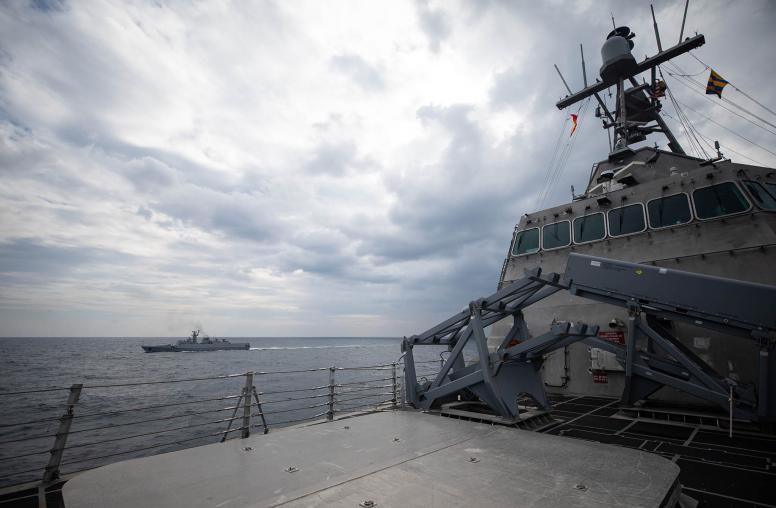Burundi on the Brink of Peace
Burundi is emerging from nearly a decade of civil war in which multiple factions fought for power, with strong ethnic identity overtones and cross-border effects that have complicated violent conflicts throughout the Great Lakes region. Former President Pierre Buyoya spoke at the Institute on September 24, 2004 to provide insight on the peace process from his unique perspective as his country, amid continued disagreement over the new constitution and sporadic attacks by dissident rebels, approaches its first national elections since 1993. He addressed the prospects for consolidation of peace and what Burundians, neighboring governments, and international actors must do to promote the process.
A career military officer, General Buyoya was president of Burundi from 1989 to 1993, when he handed over power in an election. Amid violence and turmoil, Buyoya returned to politics in 1996 with the objective of restoring peace and security. As the leader of Burundi, he oversaw an all-inclusive negotiation that resulted in the Arusha Peace Accord in August 2000. Sworn in as president in November 2001, Buyoya handed the office over to his successor in 2003 and continues to be a crucial and constructive player in Burundi's peaceful transition. Moderated by Johnnie Carson, executive vice president of the National Defense University, Buyoya's presentation was followed by questions from the floor.
Speakers
- Pierre Buyoya
Former President, Republic of Burundi - Johnnie Carson
Executive Vice President, National Defense University, Moderator
Media Inquiries
Please contact Office of Public Affairs and Communications, 202.429.3832




